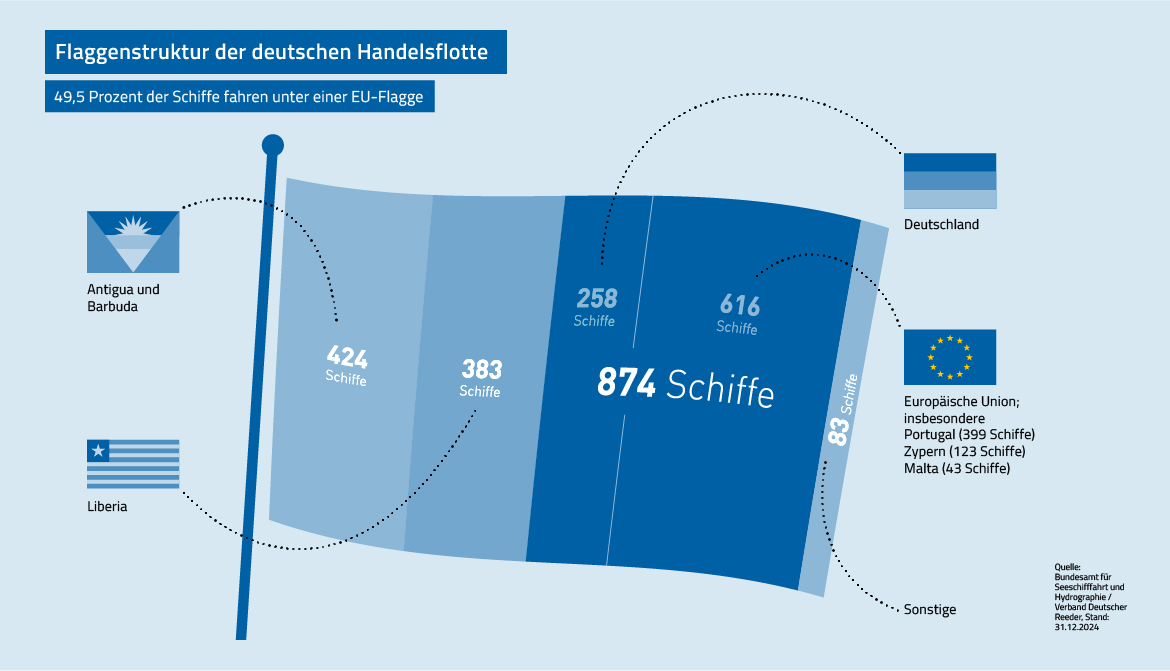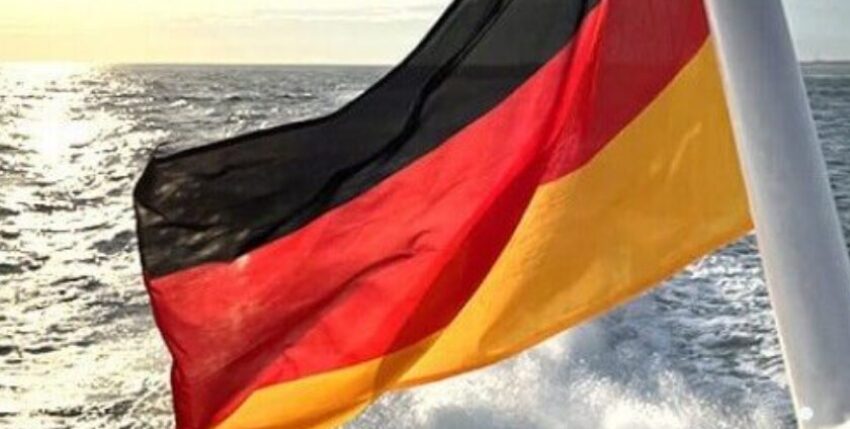German shipping companies are concerned about the geopolitical and trade situation in the world. The President of the German Shipowners' Association (VDR), Gabi Bornheim, said at the beginning of the year that around 62 per cent of German exports and 60 per cent of imports are handled by sea and emphasised that there would be neither economic stability nor national security without strong, independent merchant shipping.
VDR Managing Director Martin Kröger added that in addition to secure and free sea trade routes, a maritime security strategy and more intensive cooperation between security authorities and the merchant fleet were also necessary. "Security costs - hesitation costs more," said Kröger. In order for German shipowners' vessels to be able to travel more safely again, the VDR is pushing for more presence by the German Navy.
Germany is one of the world's most important trading nations, and a large part of this trade takes place by sea. Germany therefore has maritime interests that need to be protected, as the current conflicts along the sea trade routes harbour considerable risks. The VDR has identified four high-risk areas: In addition to the Red Sea with the threat from the Huthi rebels, these are the Black Sea, where Russia is waging its war of aggression against Ukraine, as well as the South China Sea and the Taiwan Strait, which are characterised by maritime disputes between China and the other riparian states. Everyone is now familiar with the diplomatic notes and the sometimes aggressive behaviour of Chinese ships when sailing in the latter two sea areas.
Other issues include the destruction of underwater infrastructure (sabotage) and the numerous drone reconnaissance missions over military installations (espionage). These alarming events are a call to improve co-operation with other affected states. The VDR's call for a greater presence of the German Navy to protect merchant shipping is just the right thing, isn't it?
At their summit in June, the NATO states agreed new goals that can be summarised simply: more of everything. More money, more material, more personnel. However, it is a truism that the global protection of maritime trade routes cannot be ensured by a single state. This would require all maritime trading nations, or at least the European ones, to seriously join forces. This is and will remain a tough nut to crack, which would be a worthwhile and important task for Christoph Ploß (CDU), the German government's new coordinator for the maritime economy and tourism at the Federal Ministry of Economics since May 2025.
It can be assumed that the shipowners' association is not only concerned with protecting German merchant ships. However, one-to-one surveillance of ships to be protected is ruled out for capacity reasons, as is the protection of convoys. However, in order to increase the presence on the most important shipping routes, flagstaffs are needed in Europe and in Germany; significantly more than are currently available and will be added in the foreseeable future. The delayed arrival of frigate 126 is currently being discussed in the press and cannot please the inspector of the navy.
This also raises the question of what the VDR, with around 200 member companies, can contribute itself. How about, for example, a European initiative at association level to improve the security of merchant ships against terrorist attacks and piracy? And in addition to government contracts, could shipowners also breathe new life into European shipbuilding by placing orders for newbuilds, thus preserving jobs for European seafarers?

On the VDR website, under Facts and Figures, you can read that the German shipping industry is characterised by medium-sized companies, despite the industry giant Hapag-Lloyd: more than 80 percent of companies own fewer than ten ships. There are almost 290 shipping companies in Germany with 1,764 ships, which puts it in seventh place worldwide. However, only 49.5 % of German-owned ships sail under a European flag; and of these 874 ships, only 258 fly the German flag. This means that more than half of German ships - 890 - were flagged out of the EU, mainly to Liberia (383) and Antigua and Barbuda (424). Flagging in the national ship register of the German flag is still the best protection.
So what needs to be done? Politicians are called upon to fundamentally improve the framework conditions for the maritime industry. The seven responsible federal ministries and the five coastal states must be further networked and enabled to create a standardised picture of the situation in order to bring energy security, the protection of critical infrastructures and maritime cyber security together politically. A nucleus would exist as an operational organisation: the Havariekommando in Cuxhaven, Germany's competence centre for maritime emergencies.
And the shipowners' association's call for more intensive cooperation and a greater presence by the German Navy must not be ignored, but at the same time the member companies of the VDR should also do what they can. After all, resilience and strength can only be built together.
Klaus Klages







